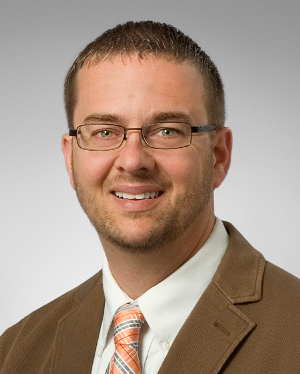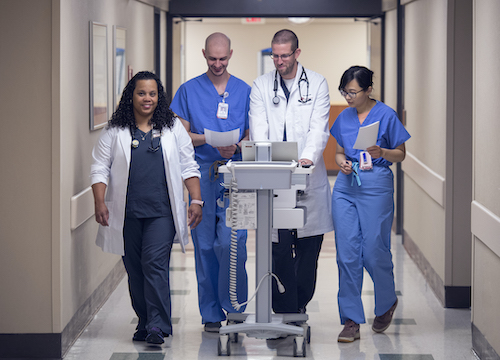Message from the Program Director
A Message from Dr. Sinclair
Our mission statement at the Wesley Family Medicine Residency Program is stated below—the program exists in order to produce excellent, comprehensive family physicians capable of providing high-quality patient care in any setting, from rural locations to large cities. We train residents at one of the largest hospitals in the state (760 beds and 102 bassinets), with core faculty, community preceptors and staff devoted to family medicine education, excellent patient care, and community relevance. The program's University of Kansas School of Medicine-Wichita (KUSM-W) sponsorship provides an academic home that delivers support for resident and faculty scholarly endeavors and opens the doors to the broader world of academic medicine.

Six thousand babies a year come into the world at Wesley Medical Center. We have four ICU’s, a pediatric hospital and a pediatric emergency room. While offering state-of-the-art technology and care in a variety of areas, the hospital culture remains welcoming and nurturing toward family medicine. Family physicians are fully involved in running the place! Wesley offers exemplary training with compassionate staff—3,000 employees and 900 doctors—in a fun, accessible Wichita environment.
Our residency clinic is comprehensive and allows for the development of procedural competence appropriate for a broadly focused family medicine practice. We practice comprehensive care that fully integrates behavioral health into medical care. It is a wonderful place to learn and use the biopsychosocial model—a foundation of family medicine. We have eight-plus family physician faculty members and 100-plus community faculty.
This program supports residents with particular interests, including maternity care, musculoskeletal medicine, adolescent medicine, chronic disease management, advocacy, leadership, geriatrics, hospital care, and women’s health. All team members are interested in offering procedures within the family medicine clinic setting and beyond, from office-based skin procedures to colonoscopy to C-sections. Our curriculum allows for multiple elective rotations and up to two longitudinal electives during the 2nd and 3rd years. Residents appreciate the flexibility to develop their own “tracks.”
I love being a family physician. I love being a program director. I love meeting residency candidates. Please share your questions and concerns with us. I will look forward to meeting energetic, engaged applicants ready to take the next step to becoming family medicine leaders.
Sincerely,
Aaron Sinclair, MD
Program Director
Clinical Associate Professor of Family and Community Medicine
University of Kansas School of Medicine-Wichita
Family Medicine Residency Program at Wesley Medical Center







